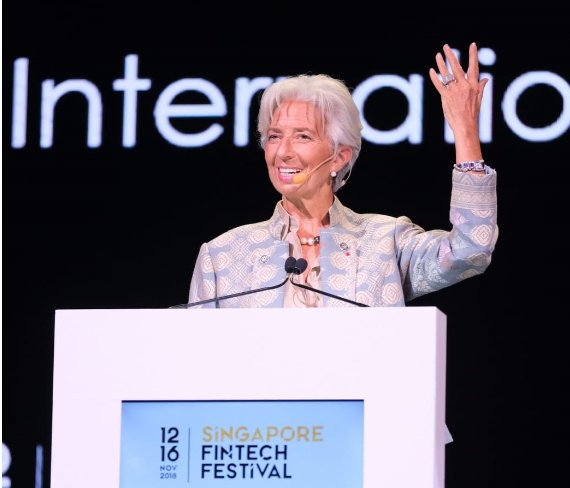Managing Director of the International Monetary Fund (IMF), Mrs. Christine Lagarde, on Monday said non-member countries of the Organization for Economic Cooperation and Development (OECD) lose about $200bn in revenue yearly, or about 1.3% of GDP, due to multinational companies shifting profits to low-tax locations to avoid paying taxes in those environments.
Lagarde said the 34-nation market economies cooperate to promote economic growth, prosperity, and sustainable development, hence the need to include non-members in the discussion, calling for a rethink of international corporate taxation which at present does not favour low income countries.
In an opinion piece published in IMFBlog, a forum for the views of IMF staff and officials on pressing economic and policy issues of the day, she assured that “the Platform for Collaboration on Tax, a joint effort by the IMF, World Bank, OECD and the UN is helping on this front.”
Rethinking the issue of tax avoidance has become urgent for three reasons, one of which is the ease at which multinational corporate are able to avoid tax, thereby undermining faith in the fairness of the overall tax system.
“Public perception that some large multinational companies pay little tax has led to political demands for urgent action,” Lagarde stressed, lamenting further about tax avoidance, which is particularly “harmful to low-income countries, depriving them of much-needed revenue to help them achieve higher economic growth, reduce poverty, and meet the 2030 Sustainable Development Goals.”
Already, advanced economies, she noted, have long shaped international corporate tax rules, without considering how such would affect low-income countries, adding that the rise of highly profitable, technology-driven, digital-heavy business models, is another reason for rethinking international corporate taxation.
“These business models rely heavily on intangible assets, such as patents or software that are hard to value.
“They also demonstrate that assuming a link between income and profits and physical presence has become outdated,” a situation that has sparked fairness concerns, even as countries with many users or consumers of digital services have little or no tax revenue from these companies, because they have no physical presence there.
Rethinking international taxation, Lagarde however warned, requires that “countries must work together. Making progress requires coordination among all, and in the right direction.
New IMF research, she said, looks at various options in the context of “better addressing profit-shifting and tax competition; overcoming the legal and administrative obstacles to reform; and ensuring full recognition of the interests of emerging and developing countries.
“The current international corporate tax architecture is fundamentally out of date. By rethinking the existing system and addressing the root causes of its weakness, all countries can benefit, including low-income nations,” she noted.







